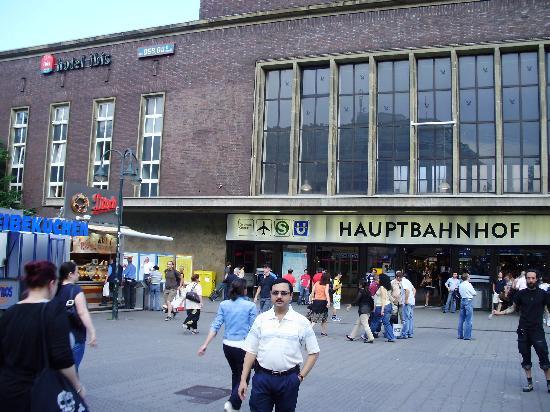German police have arrested an axe-wielding attacker believed to be suffering from mental health issues after he injured seven people at the main train station in Duesseldorf.
According to a witness, the 36-year-old man from the former Yugoslavia jumped out of a train late on Thursday evening and started hacking randomly at people, leaving blood everywhere.
“Out of the seven injured, three were badly hurt and four were slightly injured,” police said. A police spokesman told AFP on Friday morning that they had ruled out an Islamic fundamentalist motive for the attack.
Germany is on edge after a string of attacks in recent months – many carried out by people with mental health problems and Islamic terrorists – culminating in a truck attack on a Berlin Christmas market claimed by the Islamic State group.
Police have been unable to interview the Duesseldorf attacker as his injuries from jumping off the bridge were too severe, according to local news agency DPA.
Authorities originally said several attackers were involved, but after determining the man was the sole person responsible and taking him into custody, the station was reopened shortly before midnight.
According to German security services, there are about 10,000 radical Islamists in the country, of whom 1,600 have suspected links to terror groups.
However, there have been several attacks in Germany recently where the assailants have turned out to be psychologically unstable. In July, a 17-year-old migrant wielding an axe and a knife went on a rampage on a train in Bavaria, southern Germany, seriously injuring four members of a tourist family from Hong Kong and a passer-by.
That attacker was later found to be mentally unbalanced.
In February, a 35-year-old German national, who according to media was also suffering from psychiatric problems, drove his car into passers-by in Heidelberg, south-west Germany, killing one and injuring two.
In another issue relating to Dusseldorf, 8,000 people were evacuated from their residence after the discovery of an unexploded World War II bomb.
A one-kilometre radius was sealed off, and several roads blocked, including two highways, city authorities said, warning that this could affect traffic to the airport. A hotel with 250 guests was also evacuated, with the bomb expected to be defused in the early afternoon.
More than 70 years after the end of the war, unexploded bombs are regularly found buried in German soil, a legacy of the Allies’ intense bombing campaigns against Nazi Germany.
Authorities estimate that some 3,000 unexploded bombs remain underground in Berlin alone.
Last Christmas, 54,000 people were evacuated from southern Germany’s Augsburg city, after the discovery of a 1.8-tonne WWII-era unexploded bomb.




